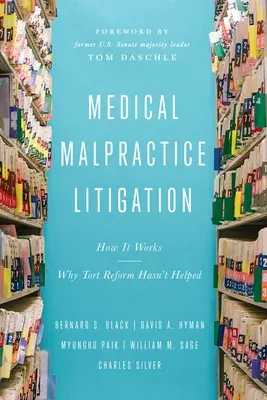Over the past 50 years, the United States experienced three major
medical malpractice (med mal) crises, each marked by dramatic increases
in the cost of malpractice liability insurance. These crises fostered a
vigorous politicized debate about the causes of the premium spikes, and
the impact on access to care and defensive medicine. State legislatures
responded to the premium spikes by enacting damages caps on
non-economic, punitive, or total damages and Congress has periodically
debated the merits of a federal cap on damages. However, the intense
political debate has been marked by a shortage of evidence, as well as
misstatements and overclaiming. The public is confused about answers to
some basic questions. What caused the premium spikes? What effect did
tort reform actually have? Did tort reform reduce frivolous litigation?
Did tort reform actually improve access to health care or reduce
defensive medicine? Both sides in the debate have strong opinions about
these matters, but their positions are mostly talking points or are
based on anecdotes. This book provides factual answers to these and
other questions about the performance of the med mal system. The
authors, all experts in the field and from across the political
spectrum, provide an accessible, fact-based response to the questions
ordinary Americans and policymakers have about the performance of the
med mal litigation system.

